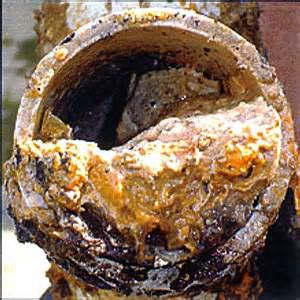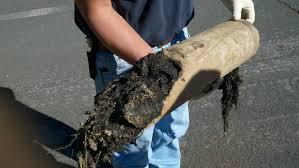How you can prevent costly sewer system breakdowns:
1. Properly handling fats, oil and grease.


Don’t put it down the drain.
- Pour unused/excess cooking oils and fats over small amounts of newspaper or towels and dispose of in the garbage. For large amounts, mix into cat litter and place it
- For large amounts, mix into cat litter and place it into the trash once all of the grease is absorbed.
- Don’t pour cooking oil or drippings, salad dressing, gravy, or sauces down the drain.
- Pre-wipe pots and dishes with dry paper towels before washing them. This will ensure that residual grease is disposed of and that the sewers remain clog free. Throw away paper towels into the trash.
Place a catch basket or strainer over the sink drain.
This catches small food particles and that may end up in the sewer system.
Don’t use a garbage disposal or food grinder.
Grinding up food makes smaller pieces, which can plug sewer pipes.
Remember: The leading cause of sewer blockage is a result of accumulation of fats, oils and grease. Do your part to prevent future occurrences of blockages and sewer overflows.
2. Handle “Flushable” wipes and other paper products safely.
Wipes thought to be flushable cause real problems for our sewer system.
 Every year customers suffer distress and disruption and even sewer flooding as a result of blockage.
Every year customers suffer distress and disruption and even sewer flooding as a result of blockage.
Wipes, though thought to be flushable, are increasingly causing real problems in municipal sewer systems. The problem is they do not quickly degrade. These wipes, when paired with grease and poured into drains, can create blockages in the pipelines that are costly to remove. These blockages cannot be removed without tremendous amounts or high pressure, so they sit in the sewer lines catching grease and other materials creating an even larger blockage.
The water disposal system is not designed to transport and treat solid waste such as wipes, tampons applicator, medicine patches, etc.
The municipal solid waste service (i.e. trash containers) is an appropriate disposal option for wipes that will not adequately degrade or flow to the treatment system provided by the City of Van Alstyne.
The good news is that we can all stop blockages from occurring. We can all start now to make a difference by following some simple steps.
Please do your part protecting the environment and keeping disposal costs down by not disposing of wipes in the toilet. When at all possible, please place them in a household trash container.
3. DO NOT flush these items down the toilet.
- Personal Wipes (bum, facial, baby wipes)
- Wet Wipes (bathroom cleaners, future polishing. antibacterial wipes)
- Antibacterial wipes (bathroom cleaners, furniture polishing)
- Sanitary Wipes
- Sanitary Liners and backing strips
- Tampon applicators
- Cotton balls or Q-Tips
- Incontinence pads
- Medicine patches, pills, tablets
- Dental Floss
- Cigarette Butts
- Plastic wrappers
- Dirty liquid from wet vacuum — contains clumps of carpet fibers.
